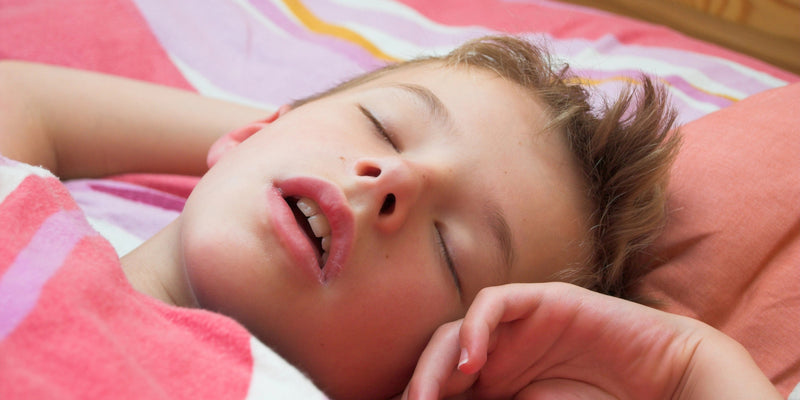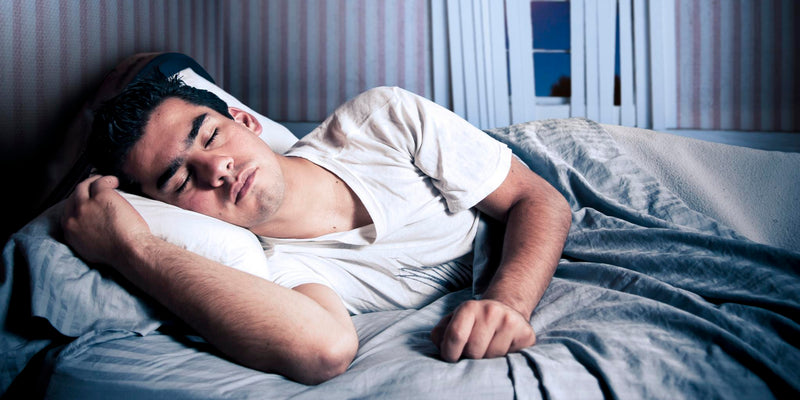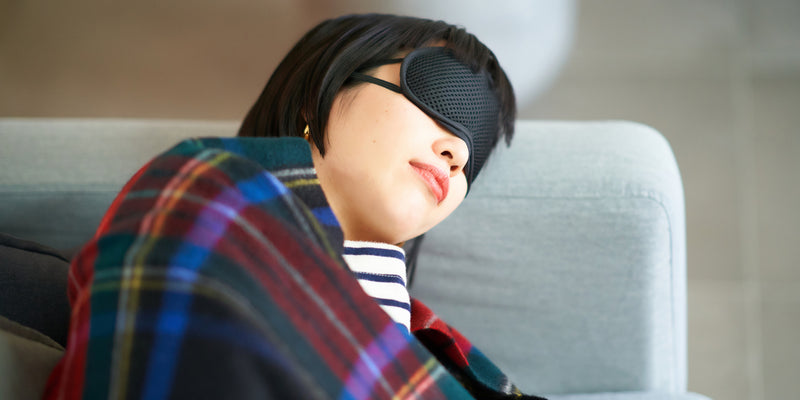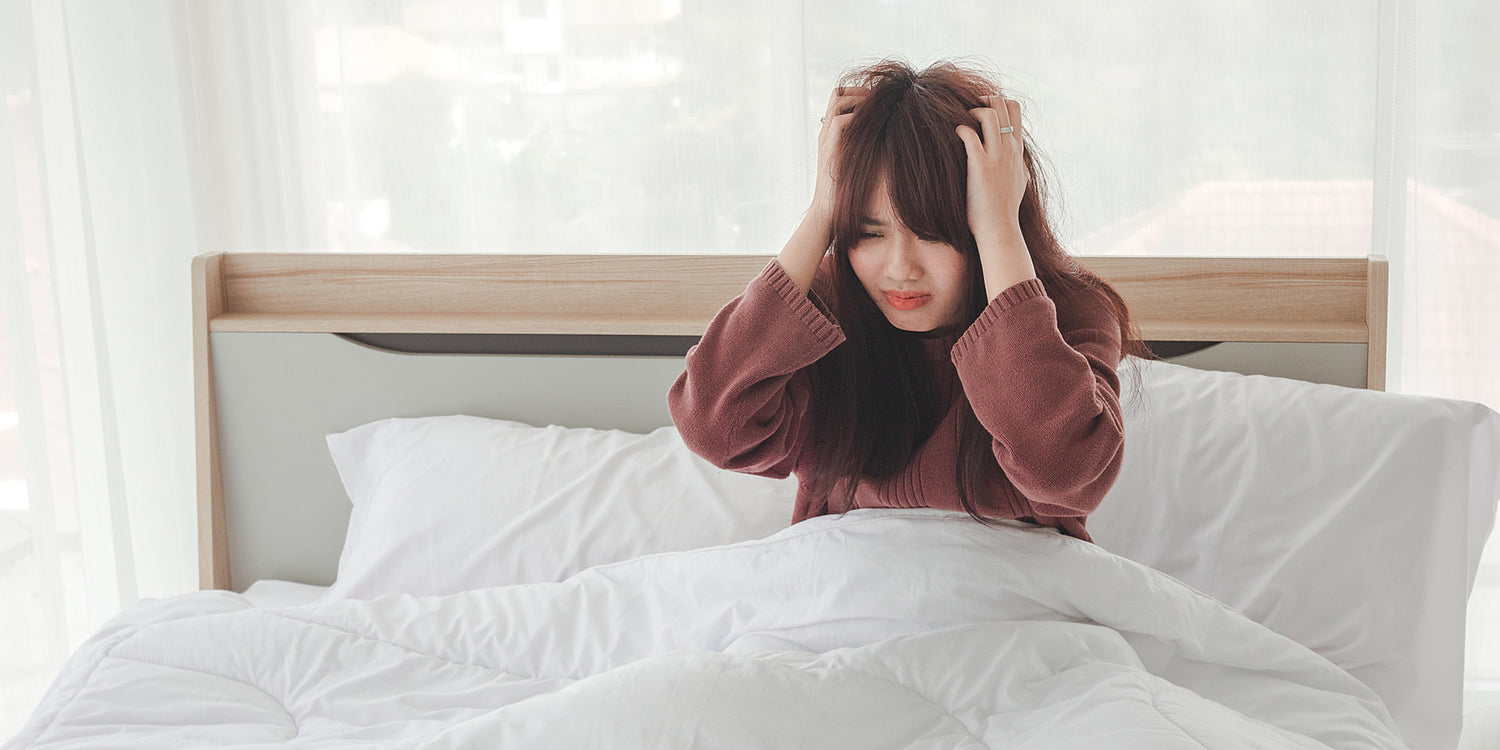Waking up with a throbbing, debilitating migraine headache is one of the worst ways to start the day. The pounding pain, sensitivity to light and sound, and nausea can derail your entire day before it even begins. If this is a regular occurrence for you, you're not alone - migraines that strike in the morning affect up to 40% of individuals.
But why do migraines often manifest first thing in the morning? And more importantly, what can you do to prevent them and start your day off on better foot? Let’s explore the common causes of morning migraines and share proven strategies to help you wake up migraine-free.
By understanding the underlying triggers and taking proactive steps, you can better manage your migraines and wake up to peaceful mornings.
How Does It Feel Like to Wake Up with a Migraine?

Waking up with a migraine can be an unsettling and distressing experience for those who suffer from this debilitating condition. The throbbing pain, often accompanied by other unpleasant symptoms, can instantly disrupt daily routines and leave individuals feeling helpless. Understanding how it feels to wake up with a migraine is crucial not only to empathize with those affected but also to raise awareness about the challenges faced by migraine sufferers.
How Important is It to Understand Its Causes and How to Prevent It?
Identifying the triggers that lead to migraines is key in preventing their occurrence. Triggers can vary from person to person, but commonly include stress, bright lights, certain foods, hormonal changes, and lack of sleep. By recognizing and addressing these triggers, individuals can significantly reduce the frequency of migraine attacks. For example, if stress is a known trigger, stress management techniques such as relaxation exercises or therapy may be effective in prevention.
The ability to prevent migraines is particularly important as it reduces reliance on medication. Triptans, the most common treatment for migraines, can have potential side effects and may become less effective over time. By utilizing preventive strategies, individuals can use less medication, resulting in fewer potential side effects and a better long-term management of their migraines.
What Are Migraine Attacks?

Migraine attacks are a type of neurological disorder characterized by severe headaches that can last from a few hours to several days. These attacks are often accompanied by additional symptoms that can vary from person to person but commonly include nausea, vomiting, sensitivity to light and sound, and visual disturbances. Migraine attacks can be extremely debilitating, significantly disrupting a person's daily activities and quality of life.
They are believed to be related to a combination of genetic and environmental factors, with triggers that can include certain foods, stress, hormonal changes, lack of sleep, and environmental stimuli. While the exact cause of migraines is still not fully understood, it is thought that they involve abnormal brain activity, particularly involving the trigeminal nerve, leading to the release of various chemicals that cause inflammation and blood vessel dilation in the brain. Migraine attacks can often be managed through a combination of lifestyle modifications, avoiding triggers, and medication to help relieve symptoms and prevent future attacks.
Can Light Sensitivity Trigger or Worsen Migraines?
Light sensitivity, also known as photophobia, is a common symptom of migraines and can significantly trigger or worsen these debilitating headaches. For some individuals, exposure to bright light or even normal lighting conditions can be enough to bring on a migraine attack.
The exact connection between light sensitivity and migraines is not fully understood, but it is believed to be related to changes in the brain. During a migraine, nerve cells in the brain become overactive, causing an increase in electrical activity. This overactivity can lead to changes in the brain, resulting in severe head pain and other migraine symptoms.
In individuals who experience light sensitivity, exposure to light can further stimulate the already overactive nerve cells in the brain, worsening the migraine symptoms. This heightened sensitivity to light can make it difficult for individuals to go about their daily activities. Even dim lighting or sunlight filtering through blinds can be unbearable for some migraine sufferers.
Managing light sensitivity is a key component of migraine management. It is essential to reduce exposure to bright lights or use visual aids such as tinted glasses or hats with brims to provide shade to the eyes. Additionally, filtering blue light from electronic devices can help alleviate symptoms.
How to Manage Light Sensitivity During a Migraine Attack?During a migraine attack, light sensitivity, or photophobia, can intensify symptoms and cause discomfort. Managing light sensitivity is crucial for alleviating pain and decreasing the severity of a migraine. Here are a few effective ways to manage light sensitivity during a migraine attack. Firstly, finding a quiet, dark room is essential. Resting in such an environment can reduce external stimuli and provide relief from the intensity of light. Opting for a room with minimal or no windows can be helpful in blocking out natural light. Wearing sunglasses can also greatly assist in managing light sensitivity. A good pair of sunglasses with UV protection helps to reduce the amount of light entering the eyes. Additionally, using a tinted screen or lens on electronic devices or while reading can help minimize brightness and glare. Another helpful technique is using blackout curtains or an eye mask. These can effectively block out external light and create a darker environment, reducing the impact of light sensitivity during a migraine attack. It is important to note that everyone's sensitivity to light is different, so individuals may need to experiment with different strategies to find what works best for them. By managing light sensitivity and creating a quiet, dark space, individuals can significantly alleviate the symptoms of a migraine attack. |
What Triggers Migraine Attacks When Waking Up?

Migraine attacks upon waking up can be triggered by various factors. Dehydration is a common trigger; low levels of hydration can cause the dilation of blood vessels in the brain, which can in turn trigger a migraine. Additionally, poor sleep quality can influence morning migraines. Irregular sleep patterns, insomnia, or even oversleeping can disrupt the body's natural rhythm and increase the likelihood of a migraine attack.
Another potential trigger is caffeine withdrawal. For individuals who regularly consume caffeine, a sudden decline in intake, such as during sleep, can trigger migraines. Caffeine withdrawal affects the blood vessels in the brain, leading to pain and discomfort.
Fortunately, there are treatments and preventive techniques available to help reduce the frequency and severity of morning migraines. Over-the-counter pain relievers, such as ibuprofen or aspirin, can alleviate symptoms. Triptans, prescription medications specifically designed for migraines, can also provide relief. In some cases, preventive medications may be prescribed by doctors to reduce the frequency of migraines.
Preventive techniques can also be employed to manage morning migraines. Ensuring proper hydration by drinking enough water throughout the day can help prevent dehydration-triggered migraines. Maintaining a consistent sleep schedule and practicing good sleep hygiene, such as avoiding screens before bed and keeping a dark and quiet sleeping environment, can help improve sleep quality. Additionally, gradually reducing caffeine intake rather than quitting abruptly can minimize caffeine withdrawal-triggered migraines.
How to Prevent Migraine Attacks When Waking Up?

Preventing migraine attacks upon waking can greatly improve the quality of life for those who suffer from this debilitating condition. There are several effective methods that one can employ to reduce the frequency and intensity of these attacks.
Improving sleep quality is a crucial aspect of migraine prevention. This can be achieved by maintaining a regular sleep schedule, avoiding exposure to electronic screens before bed, and creating a comfortable sleep environment. Additionally, it is important to ensure that one eats regular meals and stays properly hydrated throughout the day. Low blood sugar and dehydration can trigger migraines, so consuming nutritious meals and drinking enough water can help prevent attacks.
Managing stress is another key factor in preventing migraines upon waking. Techniques such as deep breathing, meditation, and engaging in activities that promote relaxation can significantly reduce the occurrence of migraines. Regular exercise has also been shown to be beneficial in preventing migraines, as it helps to reduce stress levels and promotes healthy blood circulation.
Takeaway
Waking up with a debilitating migraine headache can be an incredibly disruptive and distressing experience. The throbbing pain, sensitivity to light and sound, and nausea can derail your entire day before it even begins. Unfortunately, this is a common occurrence, with up to 40% of individuals affected by morning migraines.
Understanding the underlying causes of these morning migraines is key to developing effective prevention strategies. Triggers can include dehydration, poor sleep quality, caffeine withdrawal, and stress. By addressing these potential triggers, individuals can take proactive steps to reduce the frequency and severity of their migraine attacks.
Maintaining good sleep hygiene, staying hydrated, managing stress, and avoiding sudden changes in caffeine intake are all important preventive measures. Additionally, using light-blocking techniques like wearing sunglasses or using blackout curtains can help alleviate the debilitating effects of light sensitivity during a migraine.
While migraines can be challenging to manage, with a better understanding of the causes and targeted prevention strategies, individuals can take control of their condition and wake up to more peaceful, migraine-free mornings. By prioritizing self-care and adopting a holistic approach, it is possible to significantly improve one's quality of life and reduce the burden of these disabling headaches.
Renpho Health Tips
-

When the World Won't Stop Spinning: Strategies for Managing Vertigo and Migraines
June 5, 2024
Read more >
-

The Importance of Quality Sleep: Addressing Childhood Sleep Problems for Healthier Development
May 24, 2024
Read more >
-

A Beginner's Guide on How to Lucid Dream
April 23, 2024
Read more >
-

A Step-by-Step Guide on How You Can Power Nap Like a Pro
April 16, 2024
Read more >
-

The Ultimate Guide to Achieving a Deep Sleep with Eye Massagers
April 11, 2024
Read more >
